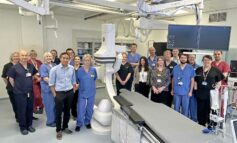New figures have shown that local Councils are paying more than £66m a year to help people with smoking-related illness to live in their own homes (domiciliary care).

The true figure could be much higher because of lack of information on some costs. There are no figures at all for what councils spend to support people aged under 50.
Individuals across the region also face a bill of over £49 million to cover the cost of their own care. This means that more than £105 million is spent unnecessarily on social care every year in the South West as a result of smoking.
For the first time, the new research, from Action on Smoking and Health (ASH), has estimated the cost of smoking to the social care system. It reveals that current smokers over 50 are twice as likely to need help with day-to-day living and on average need care nine years earlier than non-smokers.
The study shows that every year 4,000 more people in the South West need local authority social care as a result of smoking. However, smoking means that around 91,000 people are receiving unpaid care from friends or family in the region.
The report, The costs of smoking to the social care system in England, also shows that local authorities spend more as a proportion of their care budgets on smoking-related care than the NHS.
David Bird, 63, lives in Bath and has COPD (chronic obstructive pulmonary disease) caused by smoking. He said: “I’ve been receiving care from the local authority for the last six years.
“It started out as just help washing my feet and my lower legs and the support I need has increased since then. I currently have an hour a day personal care, which includes help with a shower or washing and help with dressing. I also get an hour a week domestic help, so that’s things like changing the bed and hoovering.
“I find having COPD very frustrating and I know that my wife sometimes suffers because of this. The support I receive from the local authority is incredibly important for both of us. She used to look after me by herself but she has her own health problems so it was asking a lot of her.”
Fiona Andrews, Director of Smokefree South West, said: “For every person who dies from smoking, 20 are living with a smoking-related illness. This research shows us another element of the cost of smoking to all of us, not just on local authority funded services but also on our local communities.
“Smokers not only die younger but need care on average nine years earlier than non-smokers. Local support to help people quit, like the stop smoking services provided by Councils, as well as ongoing efforts to reduce the number of young people taking up smoking is vital.
“We all know that Councils currently face real difficulties with a growing need for social care at a time of shrinking resources. The number of people who, as a result of smoking, need care from the state or from family members is very high.
“Reducing smoking can help to address funding challenges and make a real difference to those who may otherwise need years of care. We aim to work closely with public health teams in Councils to encourage people to stop smoking not just for their own sake, but because it could make an important contribution to reducing pressures on adult social care in the future.”
Commenting on the report, Cllr Simon Allen, Bath & North East Somerset Council’s Cabinet Member for Wellbeing, said: “These statistics make stark reading, however the good news is that the number of smokers in Bath and North East Somerset is significantly lower than the rest of England, and one of the lowest levels in the South West.
16.7% of adults smoke in B&NES, just under 24,000 people. Figures for England are 19.5% and the South West 18.5%.
“Most smokers regret starting and want to quit and we have a really positive record in helping them. Our local Stop Smoking Services are very successful at supporting people who want to quit – last year (13/14) three out of four people who used the service successfully quit so please give them a call and increase your chances of quitting for good.”
Dr Steve Holmes, NHS England South West Respiratory Lead said that the research echoed his own experience of working as a GP in the region: “It is amazing how many patients we all see as clinicians who have conditions caused by smoking.
“As time progresses, many of these patients need considerable ongoing support to help them with their basic personal care – such as getting dressed or washed, making a drink, and shopping.
“There are significant costs for both health and social services, but often the biggest burden falls on the families and the patient themselves. They lose income, freedom and quality of life.“
Paul Burstow MP and Chair of the All Party Parliamentary Group on Smoking and Health concluded: “Smoking remains by far the biggest single cause of preventable deaths in the UK and a significant cause of disability and ill health.
“Councils now lead on both public health and social care. Smoking brings both together. By helping people to quit smoking not only will it improve their health but it will mean they require less paid-for care in the future.
“With the pressure on council budgets, this report makes the case for investing in smoking cessation now to save money on social care in the future.”



